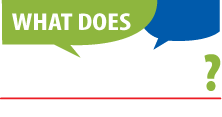Phrases starting with the letter: A B C D E F G H I J K L M N O P Q R S T U V W X Y Z
Definition of: intellect
(in′tə·lekt) noun
1. The faculty or power of perception or thought; intelligence; mind; sometimes, the higher thinking powers, as distinguished from the senses and memory: Intellect distinguishes man from brutes.
2. Intelligent people collectively: The intellect of the age is enlisted in these inquiries.
3. The faculty or power of understanding, whether of the objects immediately presented in sense perception, or of those known by processes of reasoning.
4. Formerly, in the archaic threefold division of psychology, the faculty of knowing, as distinguished from sensibility and will.
5. The power to perceive things in a rational way, as involving a more than ordinary comprehension of their relations, laws, and profounder meanings; the scientific or philosophical mind: Aristotle was a man of mighty intellect.
6. The sum of the mental powers by which knowledge is acquired, retained, and extended, as distinguished from the senses; the understanding. [<L intellectus perception, understanding, sense <intelligere understand. See INTELLIGENT.] Synonyms: intelligence, reason, reasoning, understanding. According to the long–established division of the mental powers into the intellect, the sensibilities, and the will, the intellect is that assemblage of faculties which is concerned with knowledge, as distinguished from emotion and volition. Understanding is the Saxon word of the same general import, but is chiefly used of the reasoning powers. See MIND, UNDERSTANDING. Antonyms: body, matter, passion, sensation, sense.

Comment about this word, ask questions, or add new information about this topic: